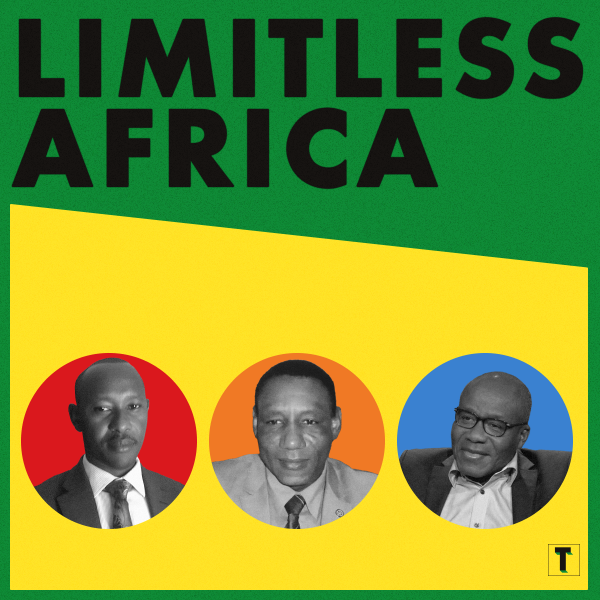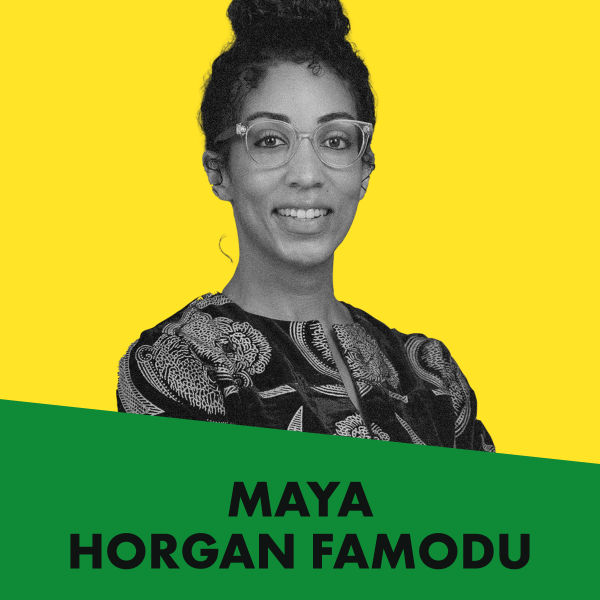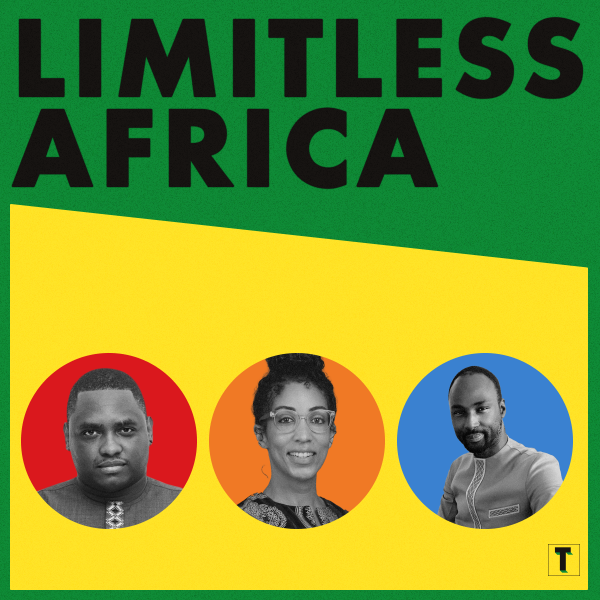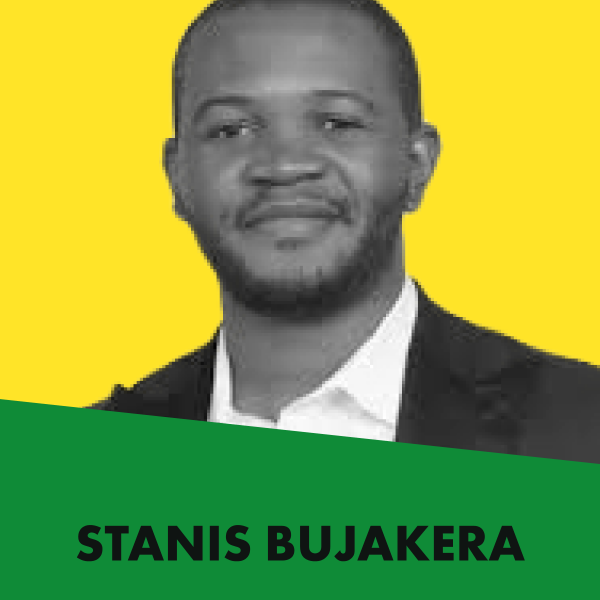Claude: There have been nine military coups d’etats in Africa since 2020.
If we continue at this rate, there will be more coups in this decade than in any since the 1960s.
The pollster Afrobarometer found that more Africans approved of military rule than ten years ago.
Many ordinary Africans suffer terribly from the effects of terrorism, corruption, economic stagnation and insecurity.
And some don’t see democracy as a solution.
In July 2023, there was a military coup in Niger. General Tchiani deposed President Bazoum. Our journalist Mariama Soumana spoke to Professor Issoufou Yahaya, a historian and researcher at the University of Niamey. Here’s their conversation.
Mariama: Why has there been a wave of coups in Africa over the last years?
Professor Yahaya: I want to be precise: there are military coups and there are also civil and constitutional coups. All of these coups are a result of poor internal governance.
All of these coups are also the result of a lack of ethics in governance. Not only is there the lack of respect for constitutional texts, there is also the matter of fiddling with the texts and add all that, as I said, to the lack of rule of law, and most of all the fact that democracy in West Africa, and Africa as a whole, is reduced to simple electoral democracy. It is emptied of its content and this content, normally should have prevented a coup d’état.
Mariama: Do the soldiers that take power after a coup d’état hold the solution to the problems that led to the coup d’etat? Do they have the right competencies to govern?
Professor Yahaya: A quality that armies have, is that an army is intrinsically well organised, and it’s the last defence against chaos because it is made up of people who have arms, who are organised, who are at the service of their country.
So, we would never wish for a coup d’etat, but when it happens it has to be taken on board, and in this way I think that a coup d’etat can be accompanied by the putting in place of credible institutions.
Me, personally, I studied with military personnel, and I know what they are taught, I spent five years in a military centre so I know what they are capable of. They are trained. A soldier today has academic training. And in the former constitution of Niger, the army has to participate in the economic development of Niger. So soldiers have technical skills, they also have operational skills in terms of working on the ground, because these countries are weak, facing many threats, but also one must not forget that these soldiers are citizens.
So if politicians have failed, soldiers can replace them but not for too long, only as long as it takes to return to basics, thus the setting in to place of institutions that are credible, sturdy, and to do a little tidying, clear things up, clear the public finances, return the rule of law.
If they’ve done the necessary cleaning up then they can withdraw after installing solid institutions and the rule of law.
Does this wave of coups signal the end of democracy, those winds of change that blew over the continent 30 or so years ago?
Well, you know, ever since the speech at La Baule, when the French president Mitterand imposed democracy as a condition for development aid, and the heads of state of that era mostly acquiesced because they could not do otherwise, but as soon as it was set up, this democracy was emptied of any sense as it was reduced to simple elections, that is just a formality.
So it’s a so-called technicians system. You put in place constitutional texts for you, you put in the personnel, electoral commissions, you put in place a constitutional court for yourself, so it’s easy to say it’s a democracy, even though these institutions do not at all fulfil the roles for which they were designed. So as long as this system persists there will always be coups and rectifications.
Mariama: So, professor, are coups good for Africa? What’s at stake?
Professor Yahaya: A coup d’état is never good. But I think that some coups are better than some ways of managing. I can think of Mali for example, when Ibrahim Boubacar Keita was in power, we saw total mismanagement. Now the question I ask myself is what was the point of those 12 years before – were they only to serve a few individuals?
So if that is democracy, a coup d’etat is better than seeing these fellows enrich themselves, under the guise of an so-called honest election. So the coup d’etat in itself isn’t great but it can be helpful, if I can take the example of Niger it is thanks to the coup d’etat that Nigeriens have taken back control of their country. Until the coup, the country did not belong to Nigeriens but to president Issoufou and the president Bazoum. So today the Nigerien is proud to say he is Nigerien, that he has a country that he did not have for over a decade. So this coup has put an end to a certain way of governing, the most mediocre way of governing in the history of Niger.
Mariama: So according to you, coups d’état only have benefits?
Professor Yahaya: No. If they are done to put order, to mark a turn, to set up another kind of governance, that’s fine, but in itself its not a rupture that’s desirable, but when it arrives, it has to be given time to construct a country, to set up responsible institutions, credible ones, that can begin a country’s development, so it’s not desirable but when it happens, it has to be positive.
Claude: Francis Kpatindé is former editor of Jeune Afrique and now a political commentator at le Monde among other publications. Here’s our conversation.
Welcome to Limitless Africa, Francis Kpatindé. Are coups d’état good for Africa?
Francis: I am going to be frank. In absolute terms, the answer evidently is no. A coup d’etat means deception, it means institutional rupture, it means the suspension of a constitution, the curtailment of civil liberty.
A coup d’état is the opposite of the popular vote. So the answer is no. But what about coup d’états at the institutional level? All over Africa, people say : putsches are a counterpart to institutional coup d’états. They’re talking about those heads of state who stay in power, and who modify constitutions in order to install themselves for the foreseeable future in power.
To avoid coups d’état, and thus to answer your question directly, three conditions must be met. Firstly, how did I come to be the head of state? Was it by a military putsch? Was it through free and fair elections? The second condition: how did I behave as head of state? Did I lead my country in an open, modern, democratic, pluralist way? And the third condition: how did I leave power?
You have Léopold Sédar Senghor, who willingly left power. You have Julius Nyere who did the same. In the case of Jerry Rawlings, who led two putsches in Ghana, and who brought order, who was then elected, and then left power willingly, Ghanains today would say that they have benefited from the work that Rawlings did.
It’s also the case for one of the most famous military leaders, Thomas Sankara. One often forgets that Thomas Sankara took power by military force. But today a huge section of young Africans see him as a positive role model.
Many of my Burkinabe friends support Ibrahim Traore who seized power in a coup d’état. It’s the same when I speak to Malian friends who see Assimi Goita as a liberating hero, almost in the same vein as Sankara himself. Is this what Africa needs today?
They are not Sankara. Sankara had natural charisma, he was an orator, he was loved, he got his hands dirty if you like and he championed causes that were sometimes surprising. At the time, he defended Native Americans, he defended the rights of prostitutes, he went to Harlem, he spoke to African Americans. He was an internationalist.
But the case of Ibrahim Traore is different. More than a year later, is it difficult to understand the whys and wherefores of the coup d’état. In the same way, the Malian coup d’état is still in the period of transition with its end uncertain.
Claude: Seth Karamage is a former soldier in the Rwandan Defense Forces. He’s now a development economist specialising in peacebuilding and good governance. In July 2024, Rwandans reelected Paul Kagame, also a former soldier, who’s been in power since 2003 Here’s our conversation.
So do you think that given the exceptional nature of certain other circumstances, coups can actually be good for certain African countries?
Seth: I will say they’re not good, but there is an extent to which when citizens are engulfed, are ravaged by manipulation, suppression, and stealing of resources, marginalisation, segregation. You see it taking decades and decades and you wonder what you can do.
What I found really interesting is that there have been many reactions that are quite different depending on the country for instance, many people in nNiger supported the coup but when it comes to say Senegal for instance, the citizens took to the streets because they wanted to protect the integrity of the electoral system of their president being elected democratically and so I’m thinking what is a takeaway for you from the fact that there are so many different reactions from citizens to coups?
Seth: Yes, yes, yes, yes. Any country has its only context. So if you look at how Senegal has been governing its people and you look at Gabon, just read about of their history, my friend. Look at how they have been transitioning from democracy to military power from military power to democracy and you will tell me which country that has the most oppressed marginalized people and when they get a chance who are the people that are going to chant and celebrate for a coup?
Claude: But then let me ask you the former soldier this question: So do you think that coups can actually be good for certain African countries? Perhaps the ones that happen in Mali and Niger, Burkina faso, gabon that you mentioned …
Seth: So for example, let me just talk about the Gabon Coup right? The Gabon Coup that. The the the the person who was the chief for the presidential protecting Unit. He was a loyalist to the president’s family to the president himself knowing everything that is happening within. He is a military general who is supposed to stay away from politics. But he’s been so close seeing all the friends, technocrats, advisors of the president. What they do. What they you know they do in open public and in privacy. He knows all that and it pains him. And then all of a sudden, he says no I can’t stand this anymore, right? This is not a political co but it is actually a weak and a manipulative system that somebody feels like cannot keep serving if is somebody who is really very patriotic. In Africa most of the people who join the military they join it through a patriotism kind of spirit.
Claude: Thanks to our three guests and their nuanced answers to a difficult topic. Many leaders in Africa are past their sell-by-date – nine African leaders have been in power for over 20 years. Coups d’états can seem like a silver bullet. But state building is a difficult and long process. The American constitution was written in 1787 but US citizens are still arguing about it. Thanks for listening.









